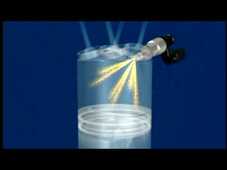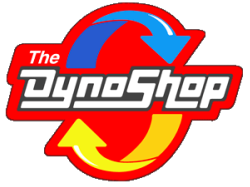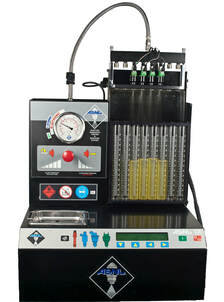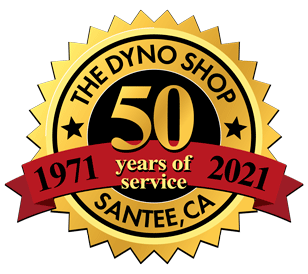 The evolution of fuel delivery for automobile engines has been an exciting one to follow. From the compression-less engine using gun powder to drive water pumps to the internal combustion fuel driven engines we know of today. When you sit in the driver seat and push a button or turn the ignition key, a signal is sent to the internal components of your engine through wires and the PCU. For your vehicle to run it must fuel, air, and combustion. The fuel injectors do as they say, they inject the chamber with fuel, it mixes with air and the piston is driven up with force to create combustion and bam, fire in the hole! There are a lot more components to this, but for the purpose of this blog we'll leave it at that. There are many reasons to have a vehicles fuel injectors cleaned. The main circumstances include fuel contamination, having uneven cylinder fueling/spark plug wear, an unexplained cylinder misfire where you have spark, general maintenance 80k-100k miles, and for peace of mind at time of engine rebuild. Fuel injector cleaning methods and results vary dramatically whether you choose to perform an on-car cleaning method, or an off-car fuel injector service. First, let’s cover on-car cleaning methods, of which there are two. One method simply uses a pour-in additive to the fuel tank. The concentrated cleaner is mixed with fuel in the tank where it slowly makes its way through the fuel system, eventually passing through to the injectors. The other on-car method uses a pressurized canister of injector cleaner. The canister is connected directly to the fuel rail. During this process, the fuel pump is disabled and the engine actually runs off of the cleaner, not the fuel in the tank. The chemical passes through the injectors, cleaning them in the process. The engine usually operates for about 5-10 minutes on the cleaner. This process is more time consuming than the pour-in method and requires special equipment and training. There are many disadvantages to using the on-car cleaning method. The chemicals used are not very aggressive. The chemicals used have to be similar in nature to gasoline since the engine must run on the chemical alone. Because the cleaning is done on-the-car, the cleaner must not damage any of the other components on the vehicle that are sensitive to chemical contamination such as the oxygen sensor, catalytic converter, and others. Therefore, the cleaner used is a fairly mild detergent. Also, the technician really never knows what results the on-car cleaning accomplished. Without being able to perform spray pattern tests, flow-rate test, and leak-down tests, the technician “hopes” the on-car method will increase vehicle performance. For preventative maintenance, on-car cleaning usually won’t hurt. However, if an injector is restricted to the point that it is causing a driveability problem, don’t expect on-car cleaning to help. At this point, you’re most likely wasting time and money. Off-car cleaning is a completely different process than either method used for on-car cleaning. Once the injectors are removed from the vehicle they are cleaned ultrasonically. The injectors are cleaned internally and externally while being pulsed at varying pulse widths and frequencies (RPM). The ultrasonic waves create cavitation bubbles in the cleaning fluid. When the microscopic bubbles touch a surface, they implode, creating forces in excess of 10,000 psi. These implosions, combined with the correct cleaning chemistry and the all important “back-flush” are what guarantee a thoroughly cleaned fuel injector. Once the injectors are cleaned, their operation is verified using the injector flow bench. The flow bench can be used to examine the injector’s spray pattern, dynamic and static flow rate and to perform a leak test, none of which can be performed with the “on-car” method. Once the injectors are cleaned and fully tested, critical components are replaced to complete the service. This includes any o-rings, seals, filters and pintle caps. When we are done the injectors are as good as or better than rebuilt injectors that can be purchased at any auto parts store. The best part is that we can help!!! Our technicians are trained experts with our flow machine. Give us a call today!
4 Comments
|
Categories
All
Archives
January 2020
|
The Dyno Shop
10042 Prospect Ave, Santee, CA 92071
(619) 562-3933
Business hours:
Monday through Friday, 8:00 am - 5:00pm*
Closed on Holidays
EZ Auto Registration hours:
Monday through Friday, 8:00 am – 5:00 pm*
Closed on Holidays
*Closed from 11:30 am to 12:30 pm daily - but we will be answering the phone :)
Thank you for your continued patronage!
10042 Prospect Ave, Santee, CA 92071
(619) 562-3933
Business hours:
Monday through Friday, 8:00 am - 5:00pm*
Closed on Holidays
EZ Auto Registration hours:
Monday through Friday, 8:00 am – 5:00 pm*
Closed on Holidays
*Closed from 11:30 am to 12:30 pm daily - but we will be answering the phone :)
Thank you for your continued patronage!
Powered by Benchmark Email
© 2017 The Dyno Shop


 RSS Feed
RSS Feed


